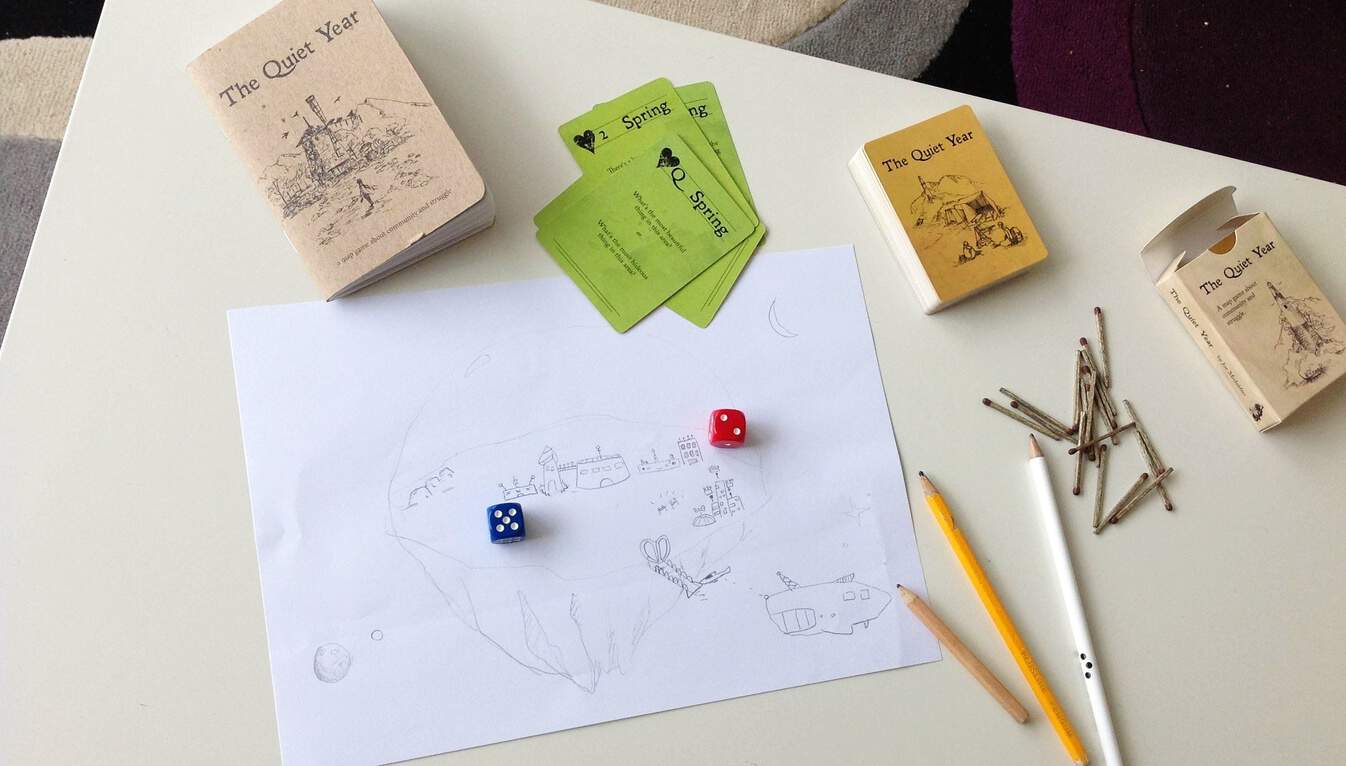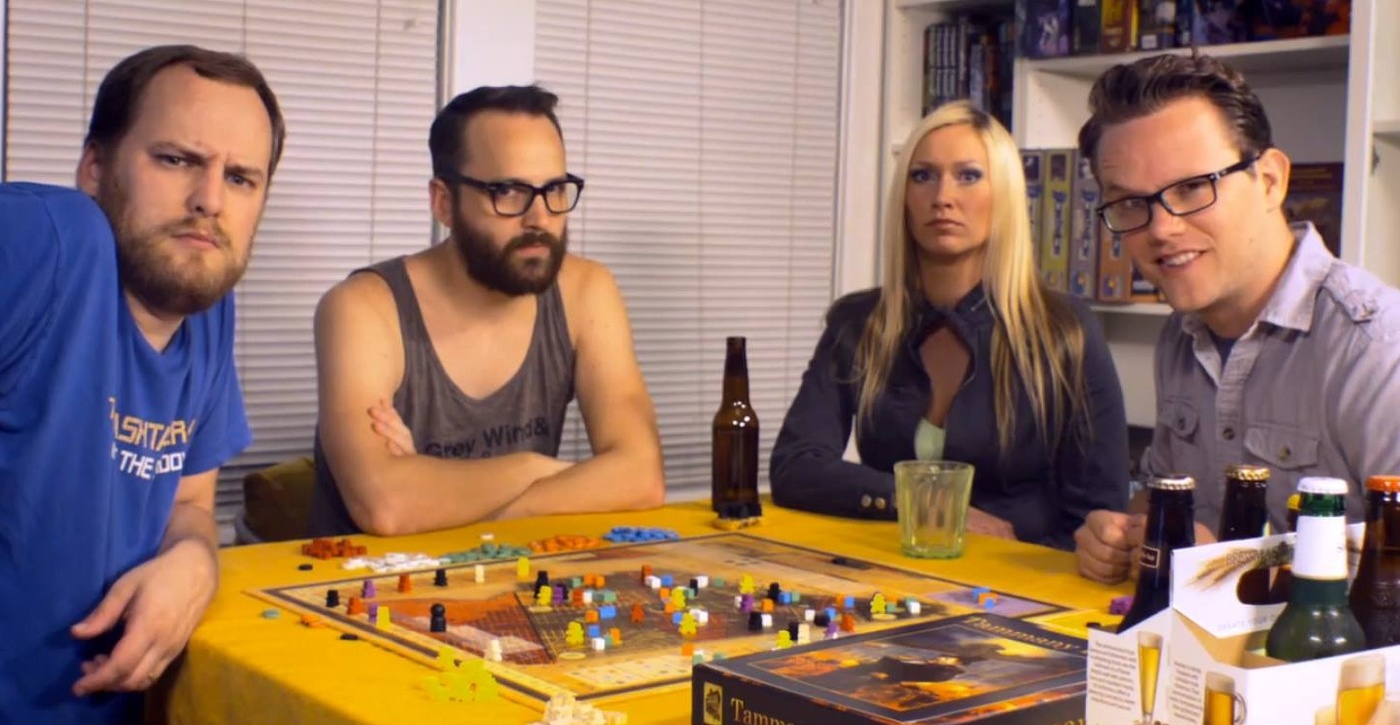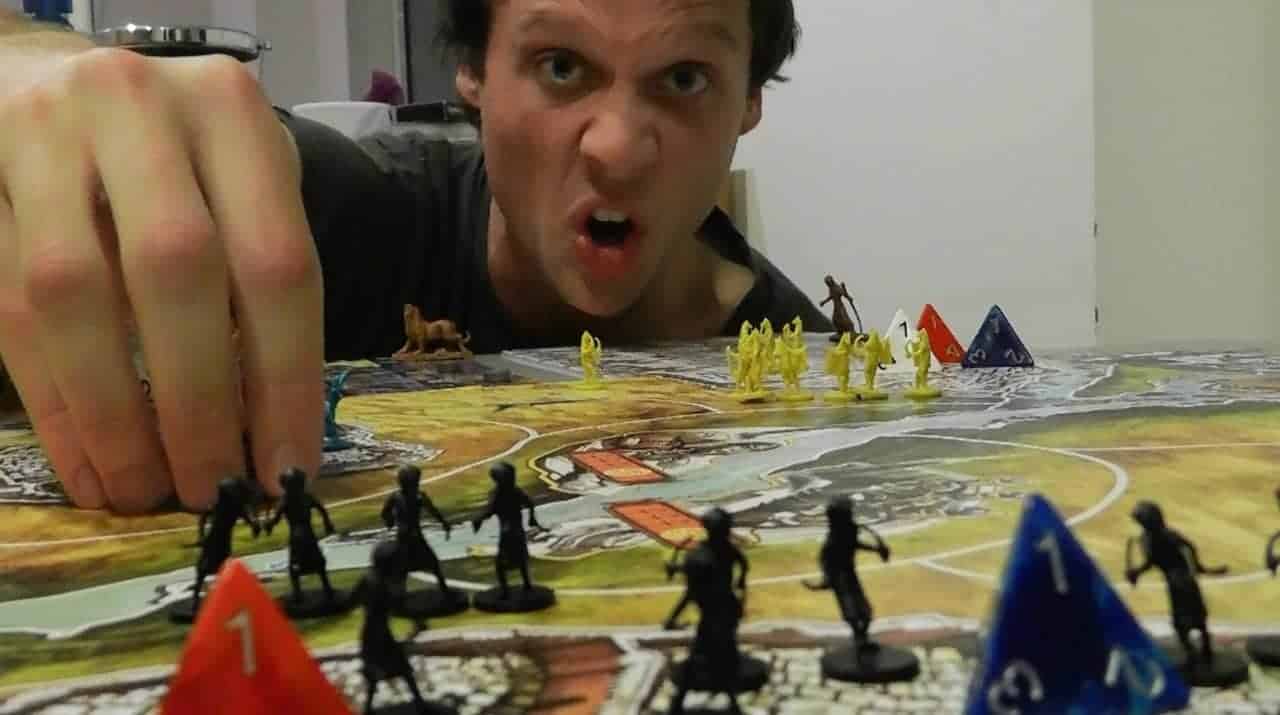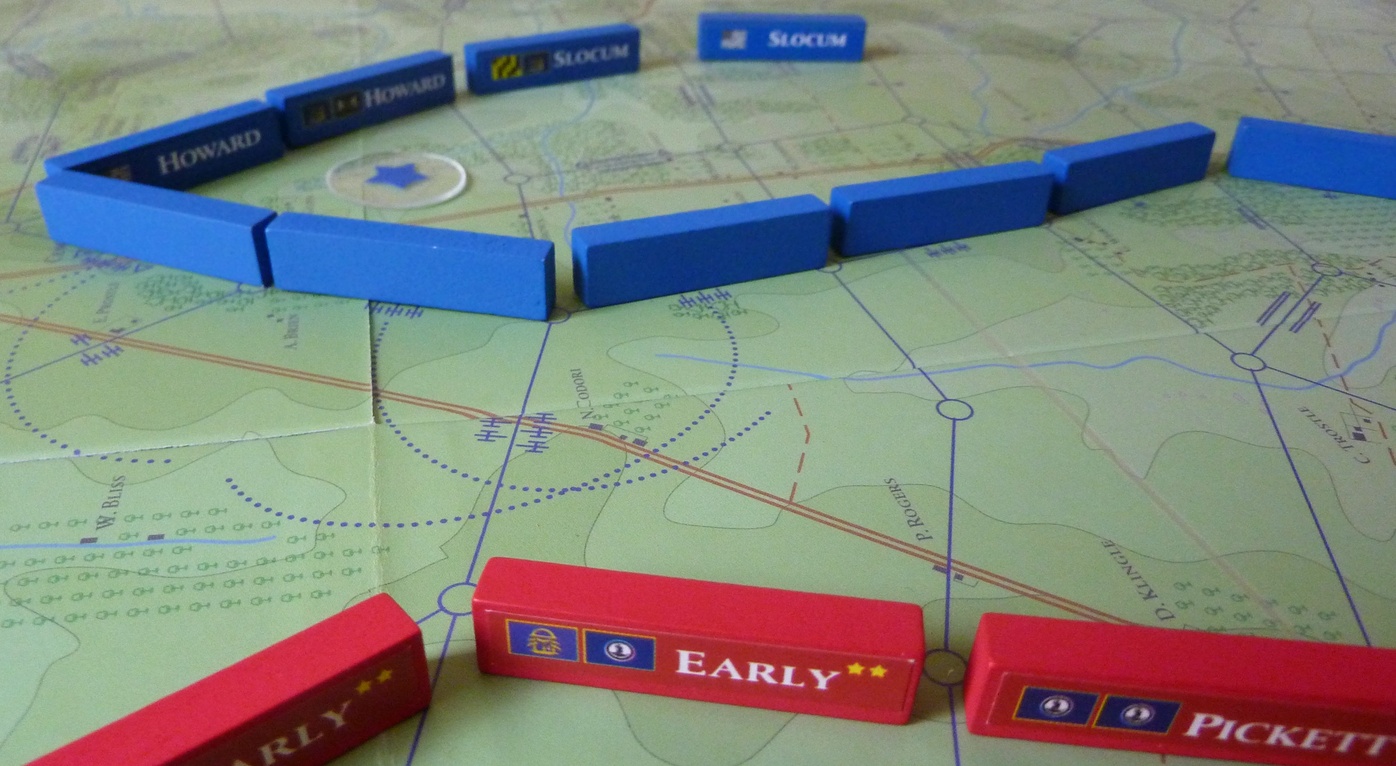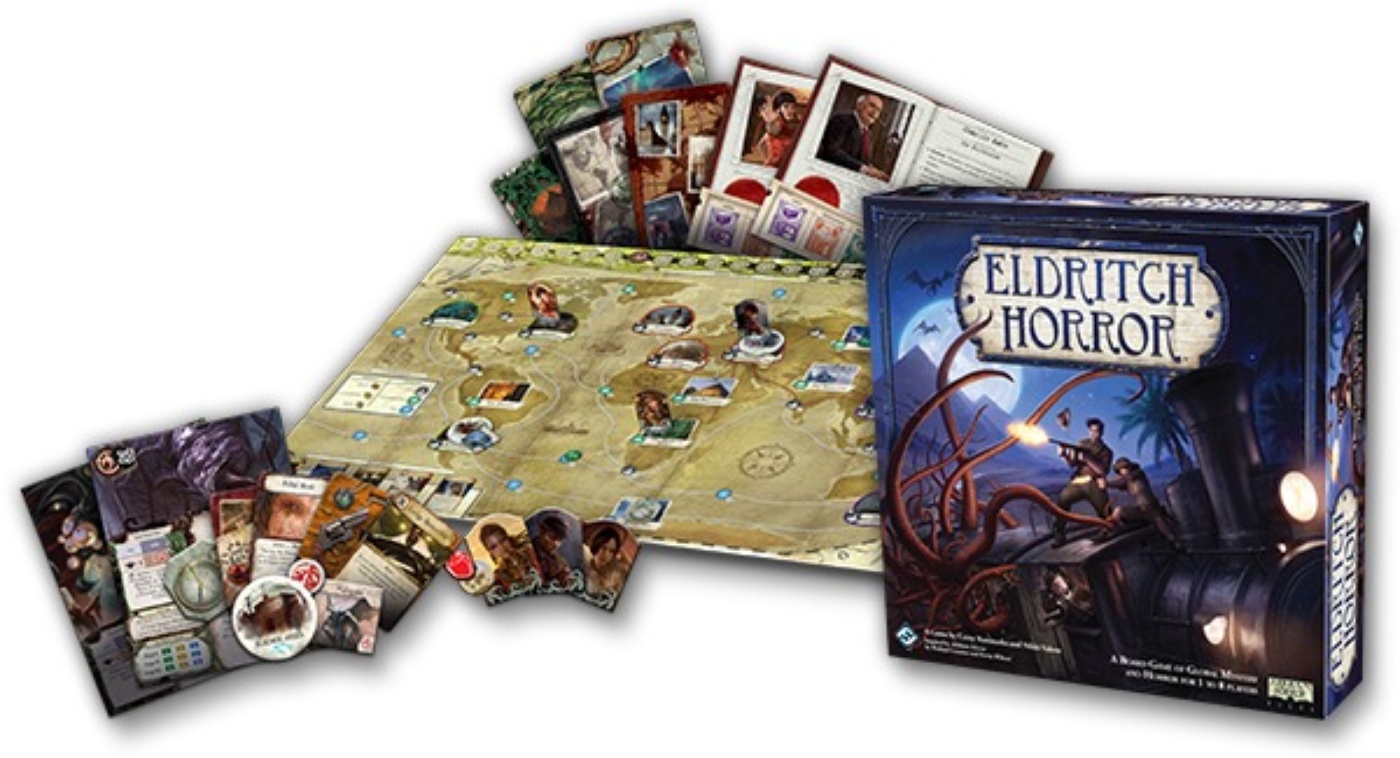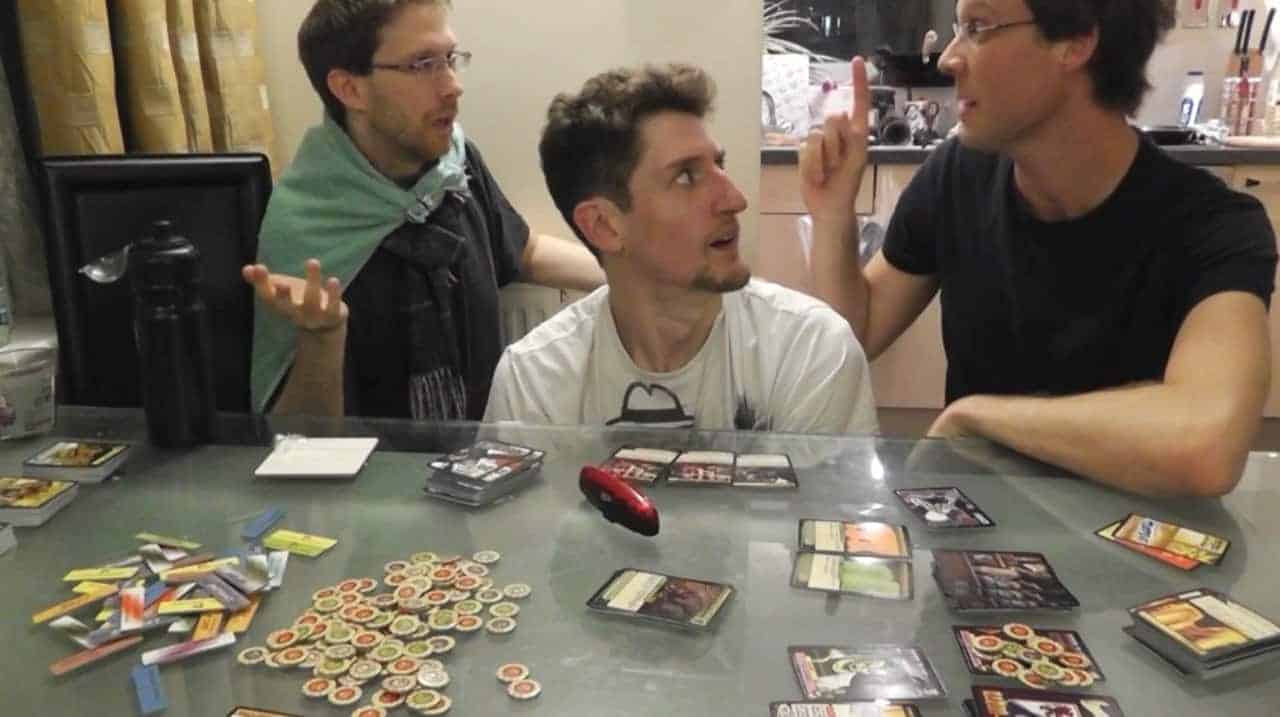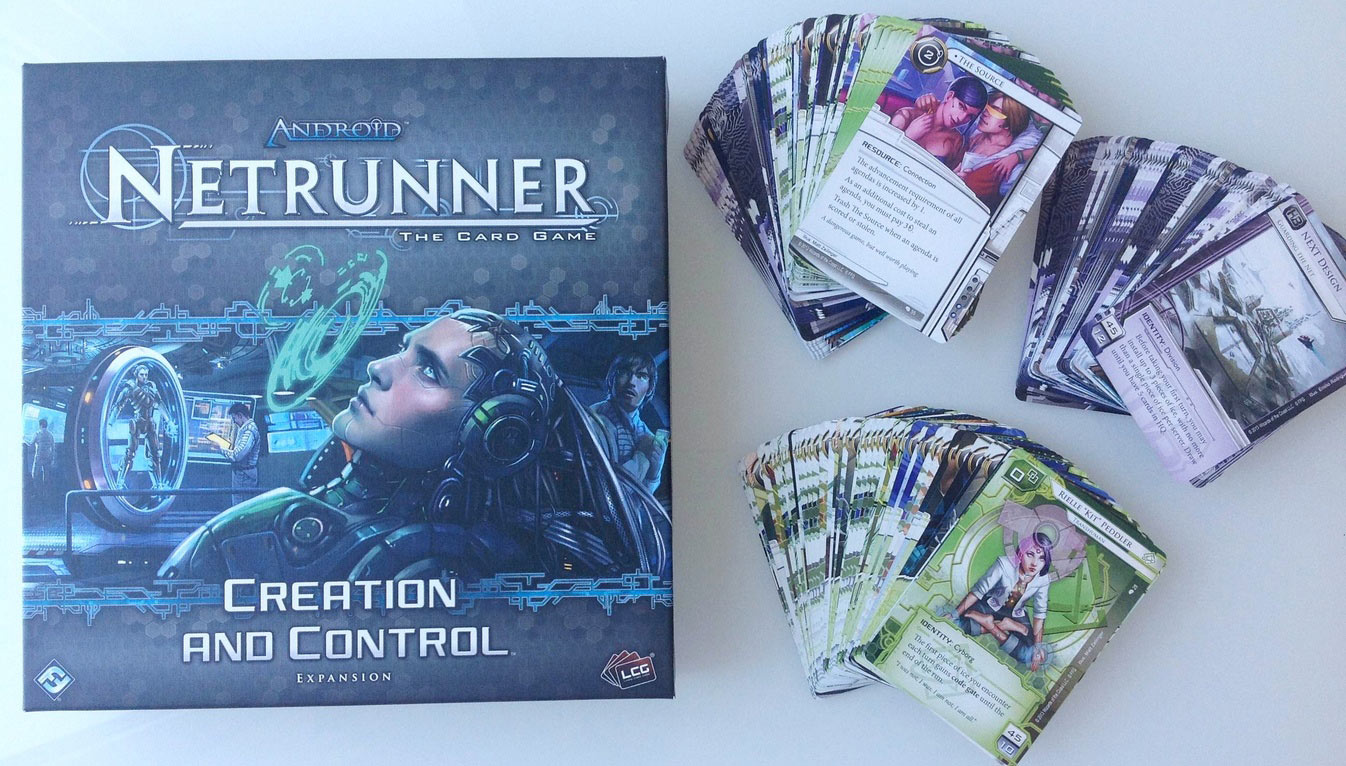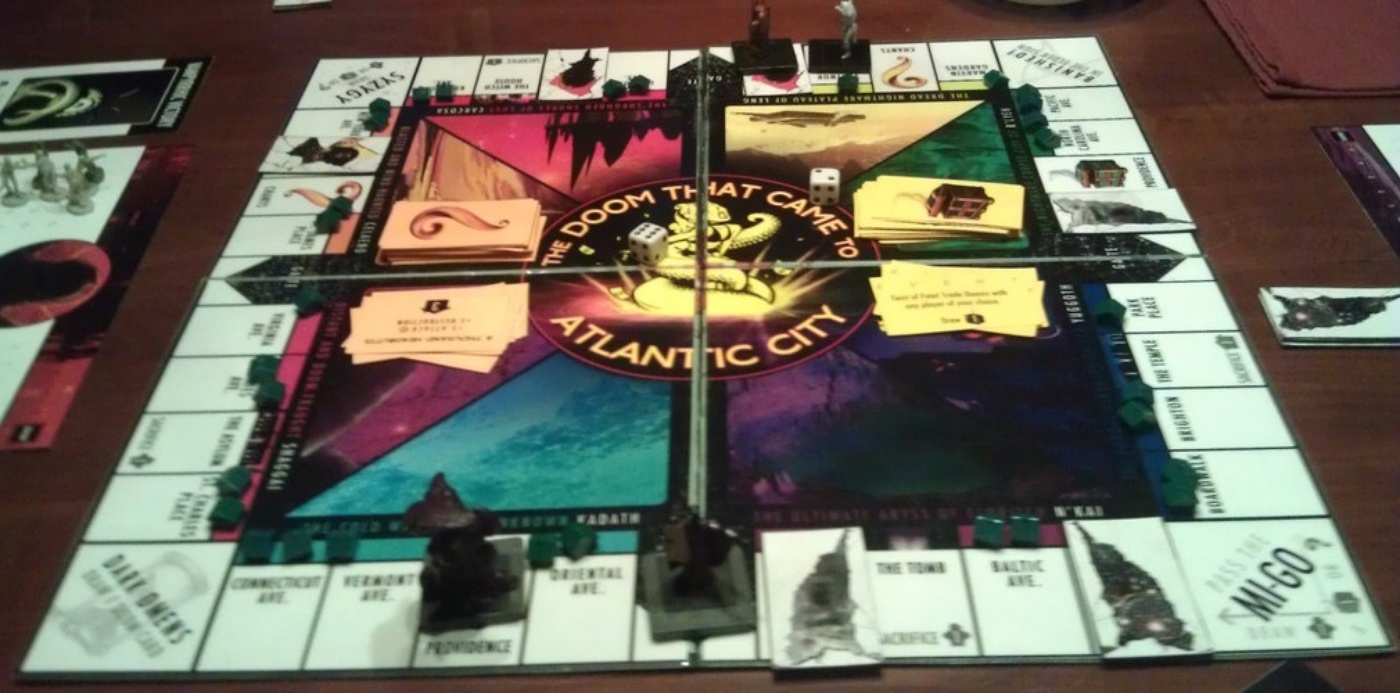[As of 2018 we’ve updated this article to include Rachel “Bowen” Simmons’ correct pronoun.]
Brendan: Hi Matt! So nice of you to invite me to your summer garden party! You know, I literally can’t remember the last time we saw each other– OH GOD WHAT’S THAT ON YOUR FACE
Thrower: Ow. Ouch! Unhand me, you oaf! That’s my authentic American Civil War facial hair.
Brendan: Sorry, I thought it was a badger.
Thrower: This month sees the 150th anniversary of the Battle of Gettysburg, often cited as the turning point of the civil war. To celebrate, I’m participating in an ultrarealistic re-enactment, playing the part of Confederate General Robert E. Lee. You missed the first two days. I’m whiling away this third morning while my troops assemble playing this new wargame on the battle, The Guns of Gettysburg.

